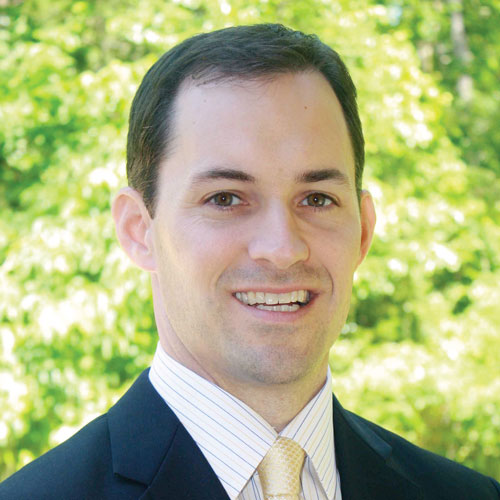
You came of age, as an attorney, in the heyday of the 1980s real estate boom. How did that influence your practice?
Well, the real estate market was on fire. Skyscrapers were popping up everywhere in Houston, and my practice centered on the acquisition, construction, and leasing of downtown properties. It was mostly transactional work, but it was great experience. But, when the market crashed, around 1987 or 1988, that rocket ship came down. It was bad for everyone. Projects going into foreclosure, companies were filing for bankruptcy, the city was filled with see-through buildings. Unfortunately, that’s where I gained most of my experience. In a climate like that, there’s a lot of infighting. Everyone was trying to minimize losses. I don’t know if anyone did, but it certainly thrust my practice more into litigation and away from the transactional world, and I found that to be a little more suited to my skill set than transactional work. I just seemed to fit well in a courtroom.
What led you to start your own practice?
I’d handled a lot of different types of cases—complex litigation, from securities to serious personal injury—but my real passion was real estate and construction, and I wanted to focus on that area. I also felt like there weren’t that many attorneys in Houston that really understood the construction and engineering practice. So, I talked to Brian Bosien. He and I had been clerks and associates together at the same firm, so we’d been practicing law together every day of our lives since we were licensed. We wanted the same things, believed the same things. So, in October of 1989, we decided to start our own practice and were joined by Marc Young. Now, we have 50-plus attorneys.
Is it a misnomer to say you focus on construction and engineering law?
A bit, because construction and engineering companies have the same needs as all corporations: lawyers to help them with employment issues, corporate issues, insurance issues, bankruptcy issues. So, when we represent one of those companies, we handle all those issues. We like to say we’re vertically integrated in the construction practice; we can do anything that a construction company needs handled by a law firm.
Do you enjoy it as much as you thought you would?
It’s hard to say, in the middle of a dispute, that you enjoy anything. It’s a grind, and there’s always a degree of pressure on you. It’s when the job comes to an end and you’ve been successful that you enjoy it. I once pursued a large claim on behalf of a contractor. It was highly contested, with really good lawyers on the other side, but my client was successful. That was enough for me, but then the client gave me a pizza oven—the kind you see in Carrabba’s Italian Grill. One of the client’s top executives had a pizza oven, and when he told me about it during the course of the dispute, I expressed some interest. Then, at the end of the case, one showed up at my house, sometime around Christmas. That’s one of the nicest things a client’s ever done for me; it’s very humbling to receive such a nice gift.
Are there any challenges to your area of law?
Lawyers. In building a firm, you want to establish a reputation, and that reputation will be based on the quality of your personnel. So, retaining young lawyers is important. The best ones are the ones who clerk with us and stay with us and will take over this firm someday. The challenge is to have the people in place who share our vision and commitment to the practice. Fortunately, some of the best lawyers I’ve ever practiced around are the ones I practice around today. They’re a heck of a lot smarter than I am.
Do you have any final words of wisdom for aspiring construction attorneys?
The strategy is pretty simple: we’re a service business. Lawyers sometimes think of themselves as something different, but we’re not. More importantly, to perform well, you have to be prepared and respond. You can’t substitute anything for hard work; whether you’re in negotiations or litigation, you have to spend the time required to understand the project, know the file. It’s a 24-7, 365-day-a-year business. Finally, when you first get a case, don’t prepare it like you’re going to settle; prepare it like you’re going to trial.


